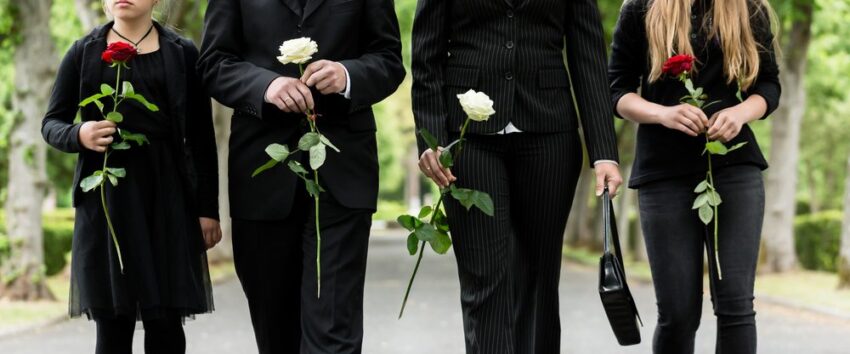Alarming data provided in the 2020 Sunlife Cost of Dying report has shown a year on year increase since they started tracking the cost of funerals in 2004.
In fact, according to the report funeral costs make up just half of the total cost of dying, which is on average a staggering £9,493.
Sunlife breakdown the cost of dying to which a basic funeral costs on average £4,417.
This is heavily weighted around the fees for official funeral directors who cost on average £2,687 per funeral. Although their role can be handled by a relative, many prefer to use a regulated funeral director to oversee vital aspects including the transportation and care of the deceased, ceremony arrangement and completion of documents and the death certificate.
The total cost of dying also includes what we spend on creating a special send off for our loved ones, including the flowers (around £184), catering (around £408), memorial headstone (around £910), and venue hire (around £245).
The BBC have also reported on the spiralling funeral costs in the UK.
The danger of rising funerals costs means that the average ceremony could rise to as much as £5,285 by 2024 – a huge financial burden we’ll one day leave behind to loved ones.
Remedies to reduce cost
It’s undeniable there’s pressure to provide the perfect end of life ceremony for our loved ones, no matter what the cost.
It comes as no surprise that many people spend much more than what’s necessary; usually on elements such as the flowers, coffin and catering. And during a time of grief, comparing prices and sticking to a budget can seem like less of a priority.
But families are struggling to cover these end of life expenses, with many having to borrow money, pay on a credit card, or use their own savings.
And with the cost of dying rising faster than the cost of living, the financial implications of death will only get worse.
Fortunately, there are several remedies to help overcome these issues.
Sunlife reports on the changing attitudes of funerals, where traditional religious funerals are becoming less and less popular.
In fact, 77% of people are now choosing to have a cremation over a traditional burial, which costs on average £1,117 less.
For those on a tighter budget, there’s also the option of a direct cremation, which is simply a cremation without the funeral service (on average £1,626).
Popularity for this type of cremation is growing, probably because the no-fuss farewell saves families thousands of pounds in send-off costs, professional fees and funeral director services.
A cremation also doesn’t require the additional cost of a burial plot, as the ashes can be scattered at a place special to the departed. Burial plot prices vary across the UK, but can be up to and over £1000.
The term ‘memory giving’ has also emerged which involves the use of crowdfunding to help families pay for a funeral. Using websites like Just Giving and GoFundMe, relatives are able to set up an online giving profile page where friends and family can donate towards the funeral costs, leaving messages and sharing pictures on the page.
One key remedy to overcome rising funeral costs is to take out a prepaid funeral plan.
A prepaid funeral plan allows you to pay in advance for your own funeral and locks-in today’s price. It also allows you to make your own funeral arrangements, removing this burden from your loved ones when the time comes.
Funeral plans typically cost between £2,400 – £4,800 depending on the level of service you need, and this can be paid in one lump sum or spread into monthly instalments from about £20 per month.


